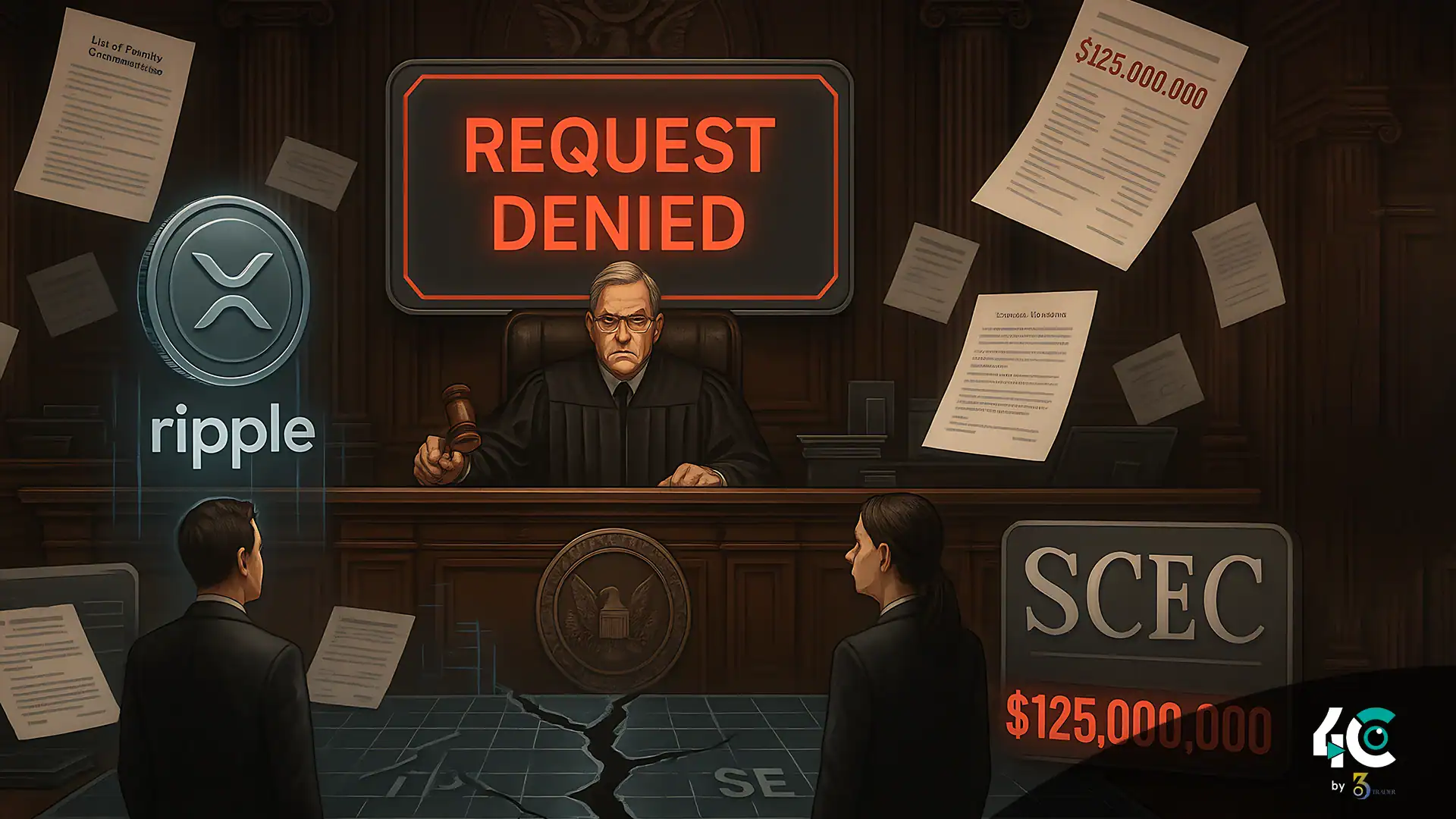Ripple Faces Setback as Court Upholds $125 Million Fine and XRP Ban
Ripple’s ongoing legal battle with the U.S. Securities and Exchange Commission (SEC) took another turn this week after a federal judge denied a joint attempt to modify the $125 million fine and lift the permanent ban on the sale of XRP to institutional investors.
Judge Analisa Torres of the District Court for the Southern District of New York rejected the joint motion from Ripple and the SEC, stating that the original ruling remains intact under federal securities law. According to the court, the decision can only be modified through a formal appeal, not by mutual agreement or regulatory shift.
Court Refuses to Reopen Case
Ripple’s motion aimed to reduce its $125 million civil penalty to $50 million and release $75 million from escrow, along with lifting the injunction on institutional XRP sales. Judge Torres found insufficient legal grounds to justify the motion, which demands a high legal bar.
In her written opinion, Torres stated that Ripple failed to demonstrate the “exceptional circumstances” required under Rule 60(b) to amend the prior decision. Ripple emphasized that both parties had accepted the ruling initially and argued it had attained legal finality.
Torres maintained that the penalty and injunction were imposed due to a risk of further violations. “Changed circumstances do not warrant the undoing,” she wrote.
SEC and Ripple’s Failed Settlement Strategy
This joint motion followed the SEC’s earlier withdrawal of its appeal, with both parties appearing to want closure in the high-profile case. Ripple CEO Brad Garlinghouse even called the move a “massive win.” However, the court did not accept the settlement terms that would have refunded part of the penalty.
Judge Torres criticized both sides for attempting to “rewrite history.” She explained that, unlike other SEC enforcement actions dismissed before reaching a final ruling, Ripple’s case had been fully litigated. According to the 2024 final judgment, selling XRP to investors without proper registration violated Section 5 of the Securities Act.
Legal Clarity and Investor Protection
Torres emphasized the importance of maintaining consistency in securities law enforcement, particularly to safeguard investors. Allowing the motion, she said, would create a dangerous precedent for crypto companies attempting to renegotiate after judgment.
Ripple’s arguments for partial refund and reference to the SEC’s evolving crypto policy failed to persuade the judge. She reiterated that a fully litigated decision should not be reversed lightly.
Ripple’s Global Push Continues
Despite the legal setback in the U.S., Ripple continues expanding globally. The company now operates in Europe, Asia, and the Middle East, focusing on digital assets and payment infrastructure.
To bolster its ecosystem, Ripple recently launched RLUSD, a stablecoin pegged to the U.S. dollar.
However, the U.S. remains a vital market. Due to the penalty and injunction, Ripple’s operations in the country remain constrained.
Legal analysts believe this ruling underscores the judiciary’s reluctance to amend final orders without compelling justification. Ripple may file a formal appeal or redirect its strategy toward long-term regulatory clarity.
Conclusion
Judge Torres’ decision reinforces the principle that legal rulings must be respected, especially in fast-evolving sectors like crypto. For Ripple, it’s a sobering reminder that working cooperatively with regulators alone isn’t enough—strict adherence to legal standards remains paramount.
The crypto industry is watching closely, as this case continues to influence how courts interpret and enforce securities laws in the digital era.



























